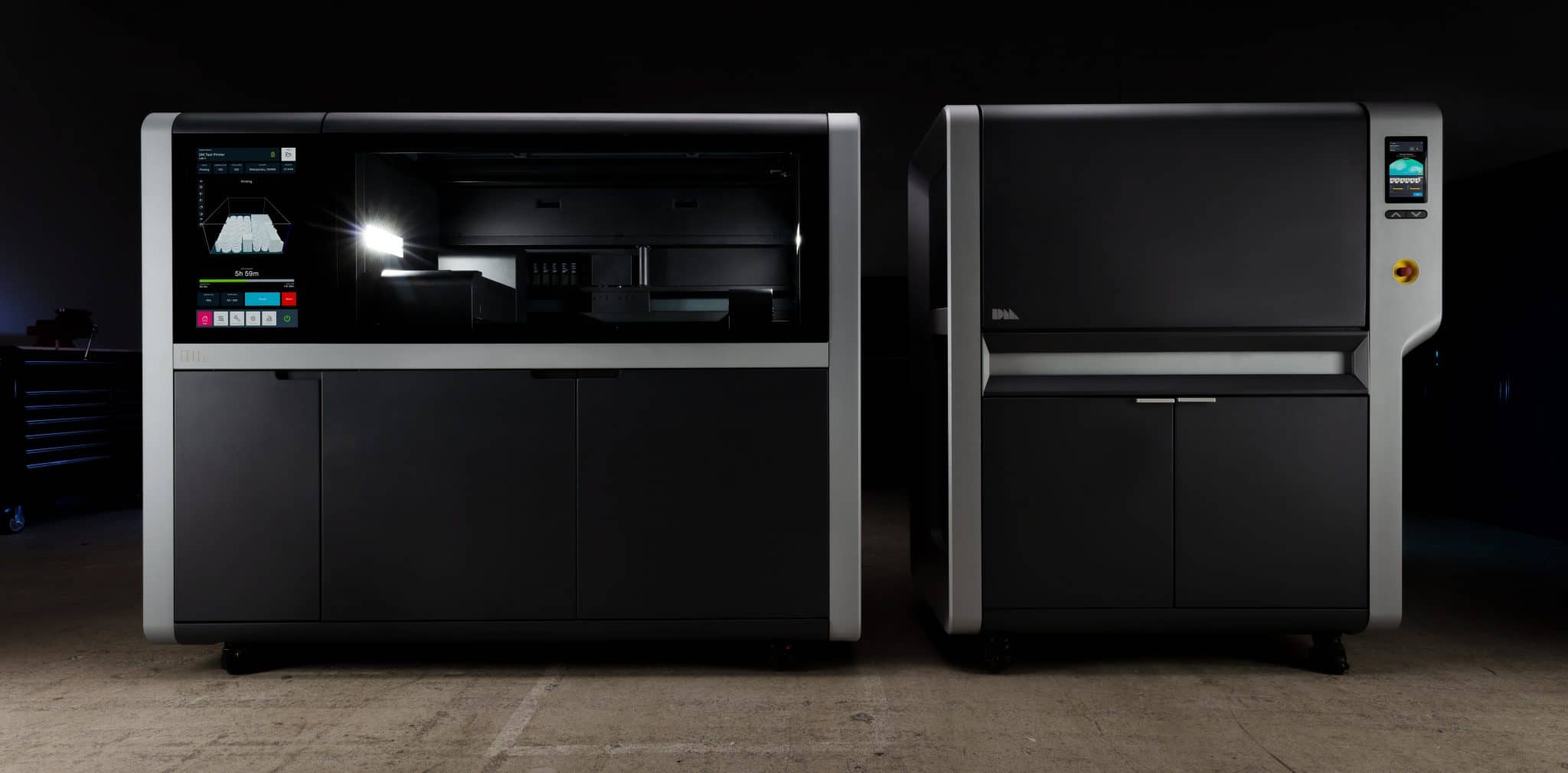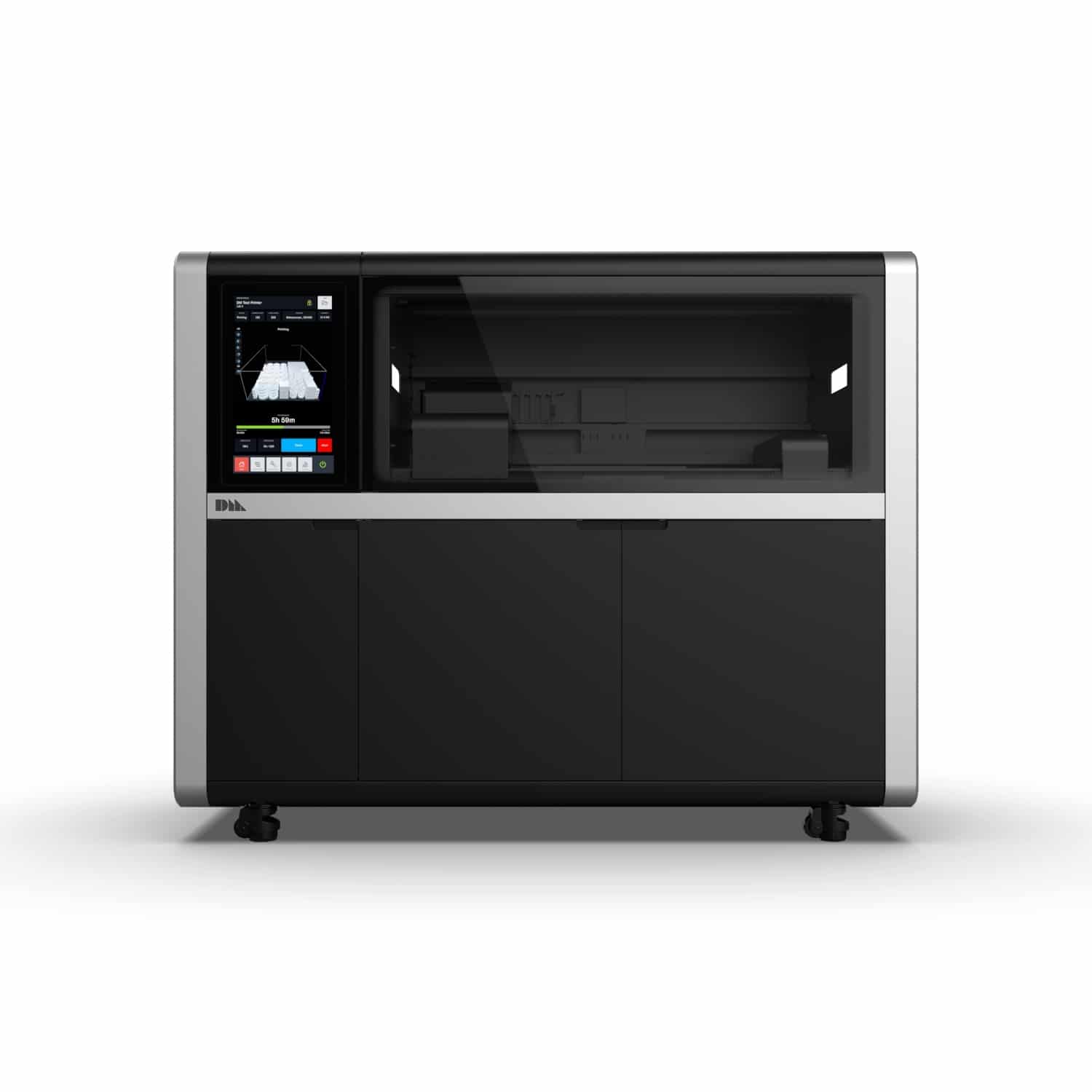As Desktop Metal continues to advance its Additive Manufacturing 2.0 vision to reshape manufacturing, the company is seeing growing European demand for metal binder jetting, including for its recently released Shop System, a metal binder jetting system designed for machine shops.
Since volume shipments of the Shop System began in the fourth quarter of 2020, the system has reportedly experienced strong adoption among businesses looking to leverage high-quality binder jetting technology to print end-use metal parts in volumes and at costs unattainable through conventional manufacturing and some other metal additive manufacturing processes. In particular, the Shop System is gaining momentum with European customers, with robust demand from manufacturers across countries such as France, Finland, Germany, Greece, Italy, Portugal, Spain, the Netherlands, and the United Kingdom.
“We are now at an inflection point where mid-and high-volume production of end-use metal parts through AM is one of the most transformational opportunities for manufacturers,” said Pierre-Victor Sabatier, VP of Sales – EMEA at Desktop Metal. “With this backdrop, it’s no surprise that there is accelerating interest in binder jetting here in Europe. We are seeing growing adoption of the Shop System as plant operators, engineers, and production managers realize this solution effectively complements their conventional manufacturing operations with reliable, accessible, and flexible batch production of complex and detailed parts at low costs. With the industry shifting to adapt to supply chain challenges and renewed requests for local manufacturing, Desktop Metal is well-positioned to answer the impressive demand we are seeing for production metal AM technologies in Europe and beyond.”
As an integral part of the Additive Manufacturing 2.0 vision, the Shop System is designed to bring metal AM to machines and job shops with an affordable, turnkey solution at speeds that are up to 10 times those of powder bed fusion AM technologies. With the Shop System, users can print end-use metal parts for use in a variety of industries spanning automotive, oil & gas, industrial machinery, and consumer products.
 Desktop Metal’s new Shop System with furnace
Desktop Metal’s new Shop System with furnace
Mid-volume manufacturing
Cosmind, based in Italy, specializes in the processing of precision sheet metal and mechanical carpentry in the naval, railway, aeronautical, and electronic industries. “For Cosmind, continuous and constant growth, the improvement of production processes, quality, competitiveness, and technological innovation are the fundamental points of the company vision,” said Marco Donisi, COO and Plant Manager, Cosmind s.r.l. “Particular emphasis has been placed on technological innovation with the implementation of new technologies in the additive manufacturing sector. The choice of Desktop Metal technology is the right combination of market diversification and technological innovation. We are convinced that the Desktop Metal Shop System technology will significantly contribute to a turning point in the mechanical sector. With this in mind, we have invested in the creation of a technological hub offering ourselves as a 3D printing service with different technologies and materials available to our customers.”
EdilCAM Sistemi (ECS), based in Italy, specializes in seismic retrofitting of buildings and civil structures.“With Desktop Metal’s Shop System, ECS has found a unique and powerful production method that has widened the design boundaries for our company’s patented system, Active Tensioner Multi-Material,” said Alessandro Vari, CEO, EdilCAM Sistemi. “Offering extraordinary performance compared to already existing technologies, ECS can also introduce binder jetting to new areas like bridges and viaducts, but also in monuments and historic buildings. Thanks to Desktop Metal’s binder jetting solutions and ECS’s twenty-year history of seismic strengthening, our company can be the first to introduce metal binder jetting in seismic retrofitting.”
Manufacturing on Demand
Officine Piki, based in Italy, specializes in stainless steel processing. “The Desktop Metal Shop System presents an important opportunity for the future of additive manufacturing, especially with prototyping, low-cost production, and the ability to make metal parts which cannot be realized with traditional manufacturing methods due to geometries and internal cavities,” said Davide Vitali, General Manager, Officine Piki. “We also believe in the sustainability of [the system’s] 3D printing process thanks to less use of raw materials resulting in a reduction of waste and recycling of materials, reduction of energy used for production, lower use of water than any other production system, no use of chemical emulsions that must be disposed of, and the opportunity for printing with sustainable materials, such as recycled wood dust.”
Poral, based in France, is a leading powder metallurgy supplier, specializing in technical components across automotive, aerospace, chemical processing, and more. “We started to investigate metal additive manufacturing some time ago, but we were waiting for the right solution for our company and customers. We needed a solution that would offer all of the benefits of 3D printing, with greater productivity and reduced costs,” said Denis Pugnet, CEO, Poral. “The Shop System allows us to provide complementary solutions to our customers, enabling them to innovate and save both time and money. It’s also a great business development tool for us, attracting new opportunities and positioning us as a leading player in the local manufacturing and Industry 4.0 fields. We already see some big projects coming to us and we anticipate huge growth in the demand for metal binder jetting parts in the coming months.”

VTT Technical Research Centre of Finland (VTT), based in Finland, is one of Europe’s leading research institutions, helping to advance the utilization and commercialization of research and technology around the world. “The development of metal binder jetting expands the applications of additive manufacturing to an even wider range of new applications that have not previously been commercially meaningful,” said Pasi Puukko, Head of VTT’s research team. “In particular, [Desktop Metal’s Shop System] binder jetting technology is better suited for applications where larger series are needed. With this technology, the range of materials is also expanding to new areas.”
Affordable, batch production
Featuring a single pass print engine, the Shop System offers a turnkey solution for producing complex, end-use metal parts faster than conventional manufacturing and comparably priced AM technologies. The Shop System includes all the equipment machine shops need to begin introducing binder jetting—from printing through sintering—and is designed to scale throughput with a range of build volume configurations. In addition, Desktop Metal offers software for build preparation and sintering simulation, in combination with metal powders and process parameters optimized to increase part quality and repeatability, making it easier for businesses to get up and running with binder jetting.
The Shop System was developed to be easy to use and operate in Additive Manufacturing 2.0 scenarios. Designed with the modern machine shop in mind, the machine produces parts leveraging an easy-to-use software interface. It features engineered powders and default processing parameters optimized to enhance quality and ensure repeatability without extensive third-party materials qualification or process development. The use of software-generated hand-removable sintering setters eliminates the need for costly and labor-intensive post-processing steps.
Featuring variable build sizes up to 16L and a high-speed, single-pass print carriage, the Shop System, like most metal binder jetting systems, has been developed to produce end-use metal parts faster than most metal PBF systems, amplifying existing output with up to hundreds of complex metal parts printed per day, with mechanical properties exceeding industry standards. With speeds up to 800 cc/hour, the Shop System reportedly enables batches of tens or hundreds of complex printed parts in as little as five hours.
Desktop Metal promises that Additive-Manufacturing-2.0-ready businesses will be able to use it to print dense, complex metal parts with fine feature detail and surface finishes as low as four-micron roughness average (Ra) out of the furnace. Leveraging an advanced single-pass printhead, 1600 native DPI, the Shop System promises up to 400 percent higher resolution than legacy binder jetting systems. Reliable print quality is enabled by the 5x nozzle redundancy on the printhead — 25 percent higher redundancy than comparable binder jetting systems.
* This article is reprinted from 3D Printing Media Network. If you are involved in infringement, please contact us to delete it.
Author: Andrea Gambini

Leave A Comment